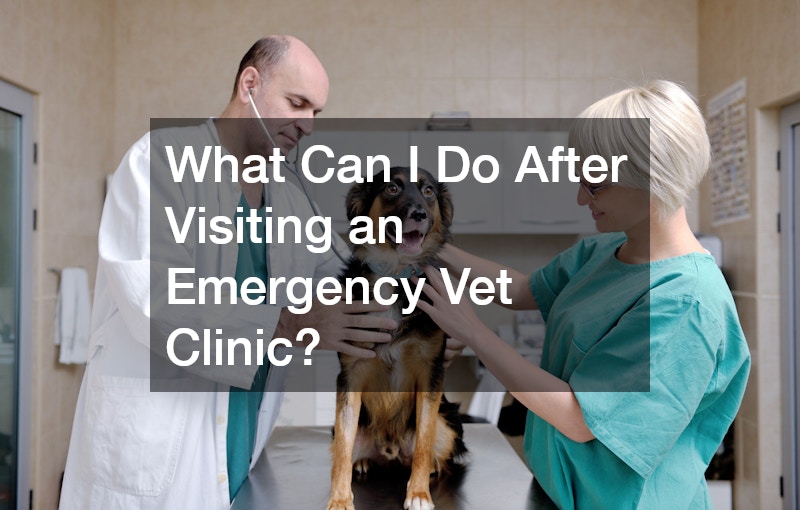
Understanding the role of emergency vet clinics is crucial for every pet owner. This article explores the services and benefits these clinics provide, ensuring you are well-prepared for any unforeseen pet emergencies.
What Services Are Offered at an Emergency Vet Clinic?
Diagnostic and Treatment Services
Emergency vet clinics are equipped with advanced diagnostic tools, such as X-rays and ultrasound machines, which allow for immediate assessment of your pet’s condition. This timely diagnosis is key to providing rapid treatment that could potentially save your pet’s life.
Additionally, these clinics often have in-house laboratories that expedite blood work and other essential tests. Results from these tests can help veterinarians quickly identify the best treatment options for your pet.
With access to a wide array of medications and medical equipment, emergency clinics are prepared to handle urgent medical situations. This preparation ensures that pets receive comprehensive care across various medical emergencies.
Surgical and Non-Surgical Interventions
Emergency vet clinics can handle both surgical and non-surgical interventions effectively. Whether your pet needs stitches for a laceration or major surgery for internal injuries, these clinics have the facilities to perform necessary procedures.
Some emergencies, such as a blocked airway, require immediate surgical intervention. Veterinarians trained in emergency procedures can perform these surgeries, providing a lifeline for pets in critical conditions.
For non-surgical cases, emergency clinics administer treatments like fluid therapy and pain management. The availability of such wide-ranging interventions ensures that your pet receives the care they need promptly.
How Do I Know If My Pet Needs Emergency Care?
Recognizing Signs of Urgency
Recognizing when your pet needs emergency care is essential for timely intervention. Signs such as severe bleeding, difficulty breathing, or unresponsiveness indicate that immediate attention is necessary.
Other symptoms, like persistent vomiting or sudden paralysis, may also warrant an emergency visit. Being vigilant about these signs helps mitigate further health complications.
In uncertain situations, it is always better to err on the side of caution. If you’re unsure about the severity of your pet’s condition, consulting with a veterinarian for guidance is advisable.
Common Pet Emergencies
Pet emergencies can range from ingestion of toxic substances to acute injuries. Poisoning, for instance, often requires immediate decontamination and supportive care.
Trauma from falls or accidents can result in serious injuries requiring urgent veterinary attention. Rapid assessment and intervention in these cases are crucial for the pet’s survival and recovery.
In addition to physical injuries, emergencies such as seizures pose immediate risks to pet health. Emergency vet clinics are specially equipped to handle these urgent and complex cases.
What Should I Expect During a Visit to an Emergency Vet Clinic?
The Triage Process
The triage process is a critical first step in an emergency vet visit, ensuring that pets with the most urgent needs receive attention first. This systematic approach helps in managing workload and prioritizing care during busy periods.
Veterinary technicians often conduct the initial assessment to gauge the severity of the situation. Based on this evaluation, pets are prioritized and their path to treatment is determined.
Understanding the triage process can help set realistic expectations for wait times during your visit. This knowledge also reassures pet owners that their furry friends are being seen as quickly as their condition dictates.
Interaction with Veterinary Staff
During your visit to an emergency vet clinic, you will interact frequently with various veterinary staff members. Clear communication is maintained to keep you informed about your pet’s condition and treatment plan.
Veterinarians and technicians explain the necessary procedures and potential outcomes, allowing you to make informed decisions. Your understanding and cooperation are vital to ensuring the best care for your pet.
Staff members also provide guidance on any preparatory steps or required follow-up actions. This thorough communication helps ensure that you leave the clinic well-informed about your pet’s ongoing care needs.
How Can I Prepare for a Trip to the Emergency Vet?
Essential Information and Items to Have Ready
Preparation is key when facing a potential pet emergency. Having your pet’s medical history, such as vaccination records and past surgeries, helps veterinarians make better-informed decisions.
Ensure that you have essential items like your pet’s identification and any current medications with you. This information can greatly expedite the diagnostic and treatment process, potentially improving the outcome for your pet.
It is also useful to have a basic pet first-aid kit on hand for immediate situations before reaching the clinic. Basic first aid can stabilize a situation, buying crucial time for professional treatment.
Financial Preparedness for Emergency Care
Emergency veterinary care can be costly, and financial preparedness helps reduce stress during an emergency. Understanding potential costs and discussing payment options with your vet can alleviate anxiety related to unexpected expenses.
Many clinics offer payment plans or work with pet insurance providers to assist with managing costs. Being financially prepared allows you to focus on your pet’s well-being without the added strain of payment concerns.
Proactively setting aside savings specifically for emergencies is another prudent financial strategy. This dedicated fund ensures that you can afford necessary treatments for your pet without delay.
What Can I Do After Visiting an Emergency Vet Clinic?
Post-Visit Care Instructions
Effective post-visit care is crucial for your pet’s recovery following an emergency. Understanding and adhering to the care instructions provided by the veterinary clinic optimizes your pet’s healing process.
These instructions may include medication administration, dietary adjustments, and activity restrictions. Ensure that you comprehend all instructions thoroughly before leaving the clinic, asking questions as needed.
Scheduling Follow-Up Exams and Treatment
Follow-up exams are vital in monitoring your pet’s recovery from an emergency. These appointments provide an opportunity for veterinarians to assess your pet’s progress and make necessary adjustments to their treatment plan.
Scheduling these exams promptly ensures that any lingering issues are addressed before they escalate. Following through with follow-up care is essential in preventing potential relapses or complications.



